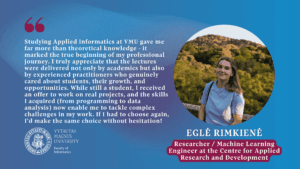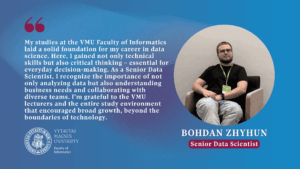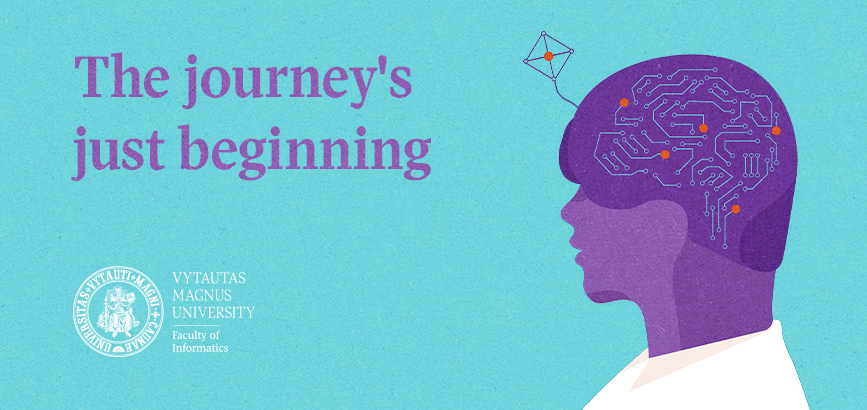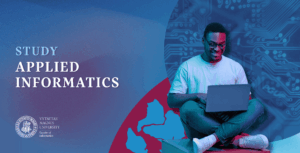Applied Informatics
Study programme information
- Area of studies: Physical Sciences
- Qualification awarded: Master’s Degree in Computing
- Mode of Studies: Full-time studies
- Length of Programme: 2 academic years (120 ECTS)
- Place of execution: VMU Faculty of Informatics, Universiteto st. 10, 53361 Akademija, Kaunas District.
- Detailed information about the study programme: Applied Informatics
Expected Learning Outcomes
Curriculum
Admission
About the Programme
In the Applied Informatics Master study programme you will learn about artificial emotional intelligence, information modelling and operations research theory, deepen your knowledge of machine learning, data visualization, neural networks, and improve your skills in the use of language technologies and digital image processing. You can study a wide range of electives, from technologies for game environments to blockchain technologies and cryptography.
Career Opportunities
Graduates of Applied Informatics study programme will be able to work as:
- software developers, architects, or consultants;
- artificial intelligence specialists;
- project or department managers in different organizations, state institutions and business units;
- researchers, scientific workers, assistants, or lecturers in science and education institutions;
- entrepreneurs establishing their own IT companies;
- they may also continue their studies in PhD studies in informatics (Computer Science) or Computer Engineering;
- …


Contacts
International Cooperation Department |
|
| Visiting address | V. Putvinskio st. 23, room 211-215, LT-44249 Kaunas |
| studies@vdu.lt | |
Dean’s Office of the Faculty of Informatics |
|
| Address | Universiteto st. 10-202, 53361 Akademija, Kaunas District |
| Phone | +370 37 327 900 |
| if@vdu.lt | |













